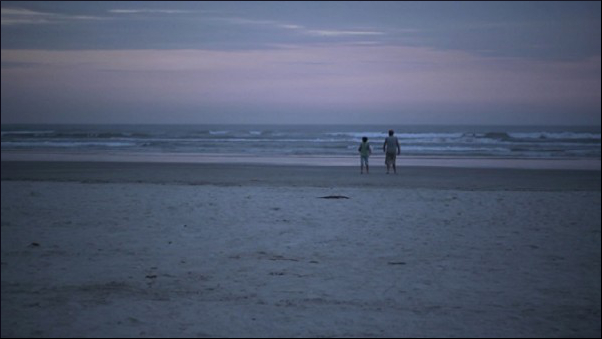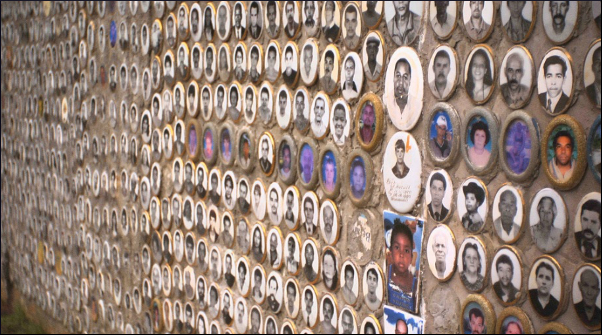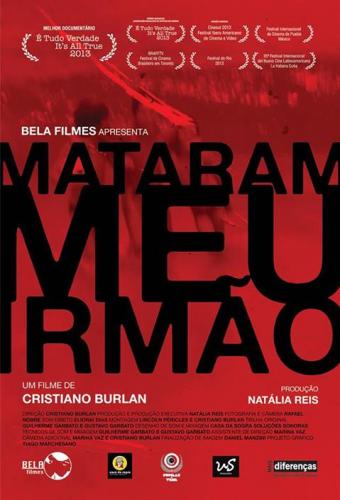Mataram Meu Irmão (They Killed My Brother) is a Brazilian documentary released in 2013. It was directed by Cristiano Burlan, who made this film as a way to remember his brother and clarify the facts surrounding his death in 2001. His brother was involved with drugs and small crimes, such as vehicle theft, and the film reconstructs his story through a series of interviews with friends and relatives. There is nothing new about this basic structure, as interviews are a classic tool of documentary filmmaking. Here, these accounts serve to describe someone who is absent, a man who no longer lives. The first scene is draped in darkness, a black screen over the filmmaker’s voice on the phone, as he talks to the institution responsible for his brother’s body. Burlan charts a private journey, delving into intimate territory. At the same time, his interviews, so personal at first glance, frame the violent context of the city of São Paulo.
"This film shows the anguish, the rage, the regret, and the sadness felt by many locals, and reflects how and where they were raised."
One of the interviews is 20 minutes long and is likely the longest (and most interesting) segment in this 77-minute documentary. Drinking beer in an off-screen bar next to the beach, a friend of Burlan shares his version of the facts. He’s smart and eloquent, a man related to theater who seems to understand the suburbs, the periphery. He has huge powers of analysis and logical thinking, but he speaks like a regular citizen, through slang and curse words, and is a good example of how people from São Paulo talk. We might notice that he repeatedly says “Meu” at the beginning or end of sentences: “Meu, that man was full of crap.” This word is an interjection, sometimes used as a sign of impatience or dissatisfaction, and employed on a regular basis. Literally, it means “my” or “mine,” but during a conversation and used as an interjection it translates into “bro,” “dude,” or “man.” When someone from São Paulo is annoyed, he or she might say, “Pô, meu!” This could be translated as “C’mon, man!” However, it should be noted that this interjection is common only in São Paulo, not everywhere in Brazil.

Curse words are also used regularly during this long interview. Two of them have a very curious meaning, in context: “casa do caralho” and “cu do mundo.” Literally, they mean “house of the penis” and “world’s bottom,” respectively, but what they actually suggest is a place that is very far away, a godforsaken place. So, when Burlan’s friend says his brother moved to the “casa do caralho,” he means that he has gone far from the urban center, maybe too far into the suburbs. He also refers to another suburban area as the “cu do mundo,” a “periphery inside the periphery.” In other words, this “cu do mundo” is not only far away but also the worst place to live, where levels of violence, drug use, and crime are unimaginable. These expressions are part of the Brazilian way of speaking. This film shows the anguish, the rage, the regret, and the sadness felt by many locals, and reflects how and where they were raised.




